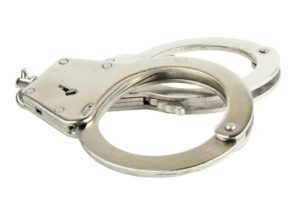 The Court continued: In March 2012, a grand jury charged Evans with various drug and weapons offenses. Evans sought to suppress the evidence as a violation of the Strip Search Act and argued that Laboy had a duty to determine the subject of the warrant before arresting him.
The Court continued: In March 2012, a grand jury charged Evans with various drug and weapons offenses. Evans sought to suppress the evidence as a violation of the Strip Search Act and argued that Laboy had a duty to determine the subject of the warrant before arresting him.
The judge found Laboy credible and ruled that the stop and arrest of Evans for the active warrant were permissible. The judge noted that due to the active warrant, Laboy could arrest Evans regardless of the offense. The judge ruled that the officer’s search incident to Evans’s arrest could not alone qualify as an exception to the warrant requirement needed to authorize a strip search. However, the judge found that the “plain feel” doctrine outlined in Minnesota v. Dickerson, 508 U.S. 366 (1993), and State v. Toth, 321 N.J. Super. 609 (App. Div. 1999), provided a basis to conduct a strip search. Applying the doctrine to the facts of the case, the judge ruled the strip search was permitted and denied the motion to suppress.
The Appellate Division reversed the denial of the suppression motion and vacated Evans’s conviction. State v. Evans, 449 N.J. Super. 66, 73 (App. Div. 2017). The panel found that Laboy had probable cause to suspect Evans had contraband in his pants and that the “plain feel” doctrine is a viable exception to the warrant requirement. However, the panel disagreed that Laboy acted reasonably in performing the strip search on Evans.
The State sought certification, which the Court granted. 230 N.J. 508 (2017). The Court also granted Evans’s cross-petition. 230 N.J. 505 (2017).
The panel erred in its application of the “plain feel” doctrine. Officer Laboy had witnessed “hundreds” of instances where defendants concealed contraband in the front of their pants and therefore immediately recognized the “rocklike” substance he felt to be similar to crack cocaine. Between the officer’s experience-derived identification of the substance and the presence of $2000 in cash, the “plain feel” exception — which the Court adopts — applied.
The three-judge appellate panel held that the officer was unreasonable in not obtaining a warrant to conduct the strip search. The reversal of the appellate division decision continues the Supreme Court’s trend of undermining the preference for search warrants while broadening the discretion given to police.
